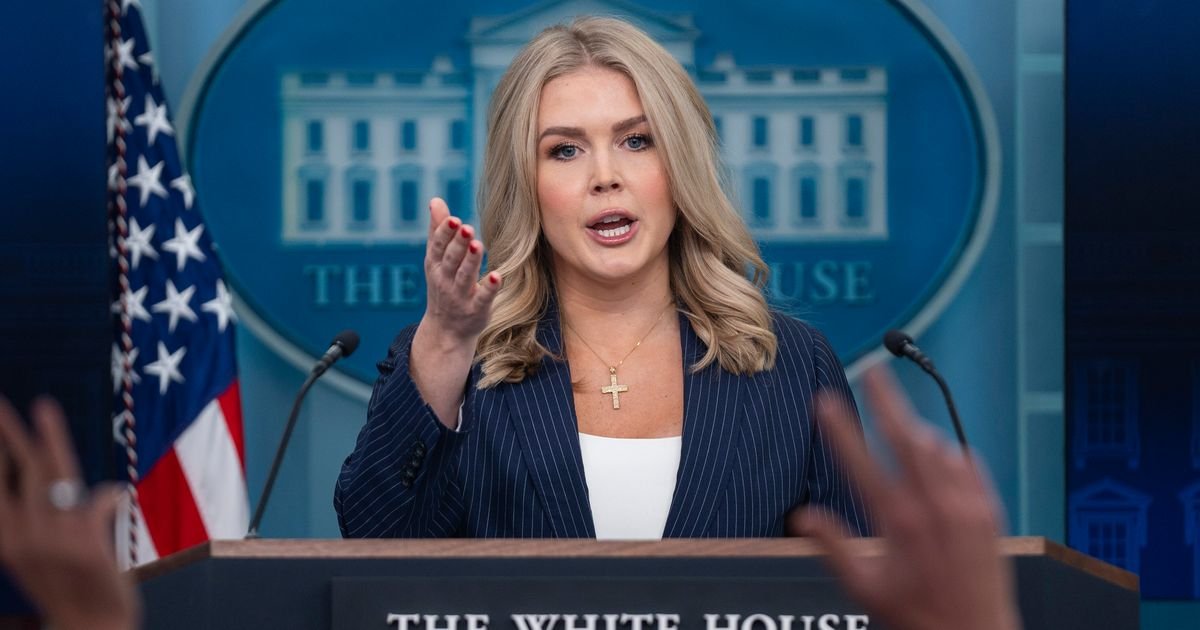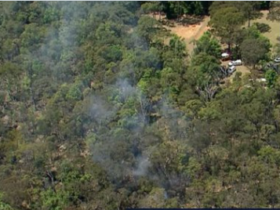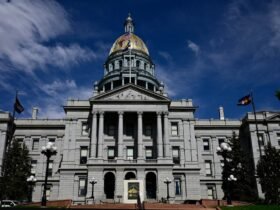White House press secretary Karoline Leavitt stood by her order to restrict press access to The Associated Press after the global nonprofit news outlet refused to comply with President Donald Trump’s executive order that changes the Gulf of Mexico’s name to the Gulf of America.
“I was very upfront in my briefing on Day 1 that if we feel that there are lies being pushed by outlets in this room, we are going to hold those lies accountable. And it is a fact that the body of water off the coast of Louisiana is called the Gulf of America,” Leavitt said at an afternoon press conference.
“I’m not sure why news outlets don’t want to call it that. But that is what it is,” she went on, while calling out Google’s and Apple’s decisions to comply with Trump’s order. “It’s very important to this administration that we get that right, not just for people here at home but also for the rest of the world,” she said.
Google said only in the U.S. would the old name be completely scrubbed from its maps. The name would not change for those in Mexico and both names, the current and former, would be visible to “everyone in the rest of the world.”
Leavitt’s insistence immediately followed the AP sending a warning letter to the White House’s chief of staff, stating that it’s “prepared to vigorously defend its constitutional rights” after its reporters were barred access to press events Tuesday.
In a letter addressed to White House chief of staff Susie Wiles and obtained by The New York Times, AP Executive Editor Julie Pace called the restrictions a “clear violation of the First Amendment.”
“The actions taken by the White House were plainly intended to punish the AP for the content of its speech. It is among the most basic tenets of the First Amendment that the government cannot retaliate against the public or the press for what they say,” Pace said.
Pace stated that Leavitt on Tuesday personally warned an AP reporter that access would be restricted to the news organization, established in 1846, if it didn’t immediately align its editorial standards with Trump’s executive order, which was signed on Jan. 20.
Go Ad-Free — And Protect The Free Press
Support JS
Already contributed? Log in to hide these messages.
When the AP didn’t comply, an AP reporter was blocked from entering the Oval Office to cover an event. Another reporter was blocked from an evening press event in the White House’s Diplomatic Room, Pace said.
The AP has argued that because the body of water includes international waters, “Mexico, as well as other countries and international bodies, do not have to recognize the name change.”
“As a global news agency that disseminates news around the world, the AP must ensure that place names and geography are easily recognizable to all audiences,” the news outlet said.













Leave a Reply